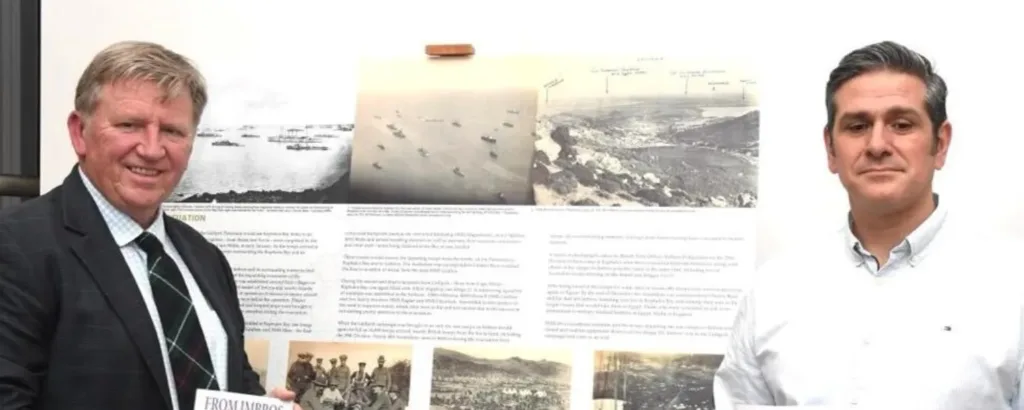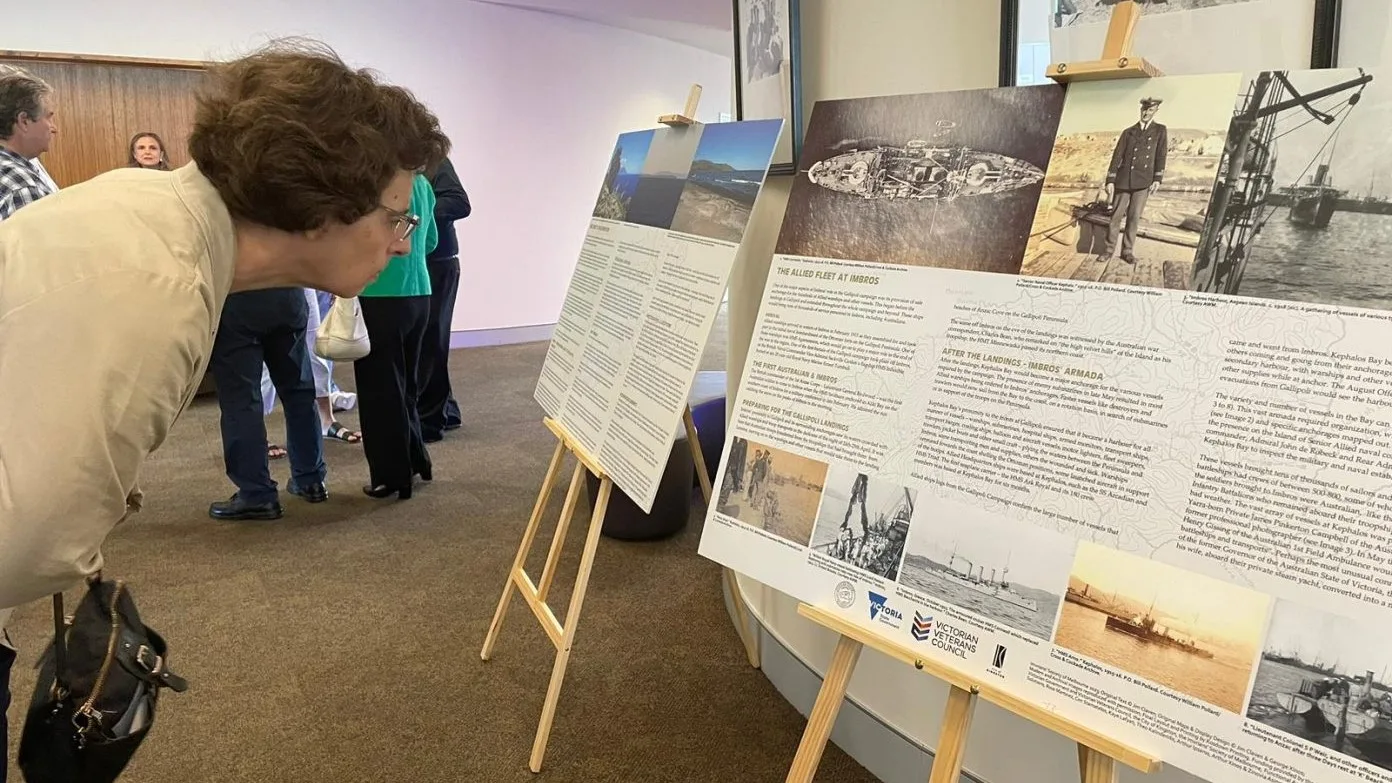The northern Aegean Island of Imbros and its population played a significant but little appreciated role in the Gallipoli campaign and Australia’s Anzac story.
Research by historian Jim Claven OAM reveals that Imbros was a major base for the Gallipoli campaign, the island transformed and its people impacted by its effects. It was from the waters of Imbros that the Anzacs made their final approach to Anzac Cove on 25 April 1915. The island became a major naval, land and aircraft base for the duration of the campaign as well as the home for the Allied Headquarters. Australian soldiers and others were based there, including the official press representative Charles Bean.
Mr Claven reveals this story through a new Exhibition comprising some 21 large panels – entitled From Imbros Over The Sea – and its associated publication. He does so through the reproduction of photographs and artworks from the time, explained by text drawing on the vast archive of the Gallipoli campaign. Importantly, it features the impact of the Allied presence on the local islanders who were overwhelmingly Hellenic and their interaction with the new arrivals, including many Australians.

Mr Claven was commissioned to undertake this commemorative project by the Imvrians’ Society of Melbourne with the support of the Victorian Government, Victorian Veterans Council and other donors. In completing the project, Mr Claven has drawn on his extensive research into the Hellenic link to Anzac, especially concerning the islands of the northern Aegean – Lemnos, Imbros and Tenedos. This includes research in archives across the world as well as research trips to Imbros itself.
Mr Claven’s presentation will introduce the Exhibition and explain the genesis of the project as well as the role of Imbros in the Gallipoli campaign in some detail.
The presentation launching the Exhibition will take place on Thursday, 23 May 2024, commencing 7pm. A small selection of the Exhibition panels will also be on display during the presentation.
The Exhibition will be open for viewing on the Mezzanine Floor at the Greek Centre on Sat 25 May 2024 12noon-5pm and Sun 26 May 2024 11am-4pm.
The presentation and Exhibition will be held on the Mezzanine Level at the Greek Centre, 168 Lonsdale Street.
